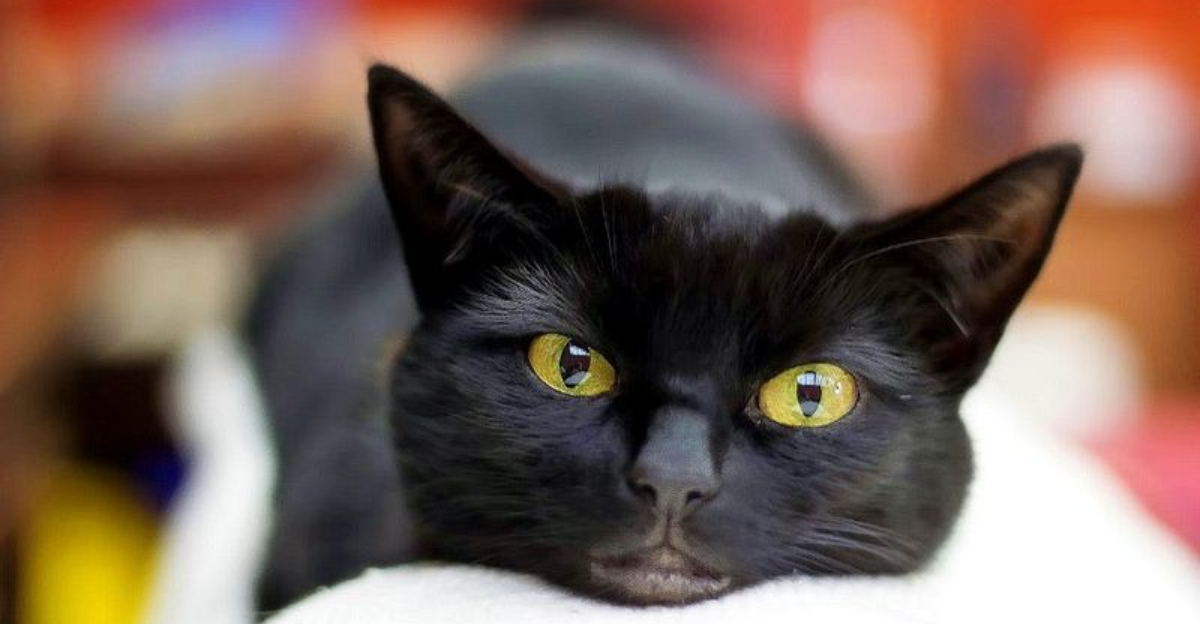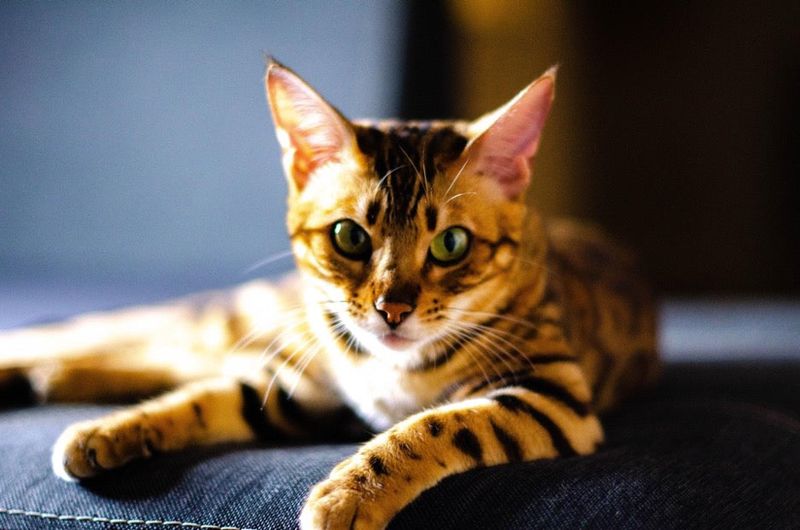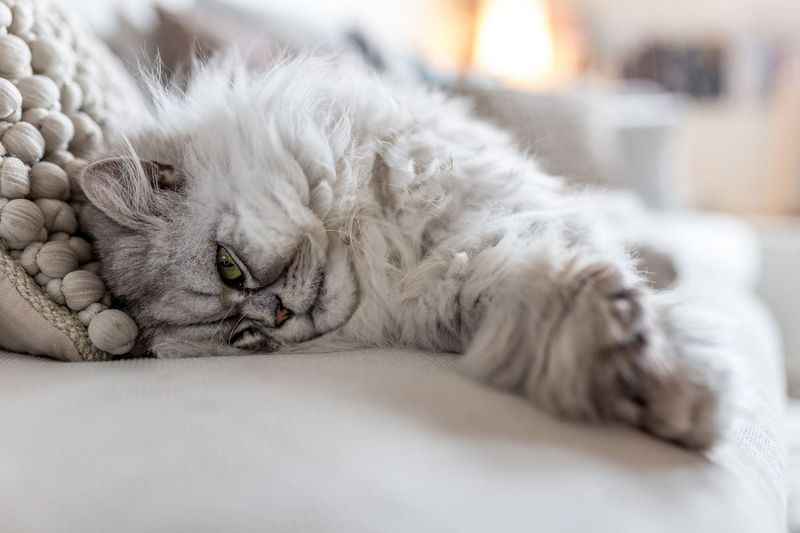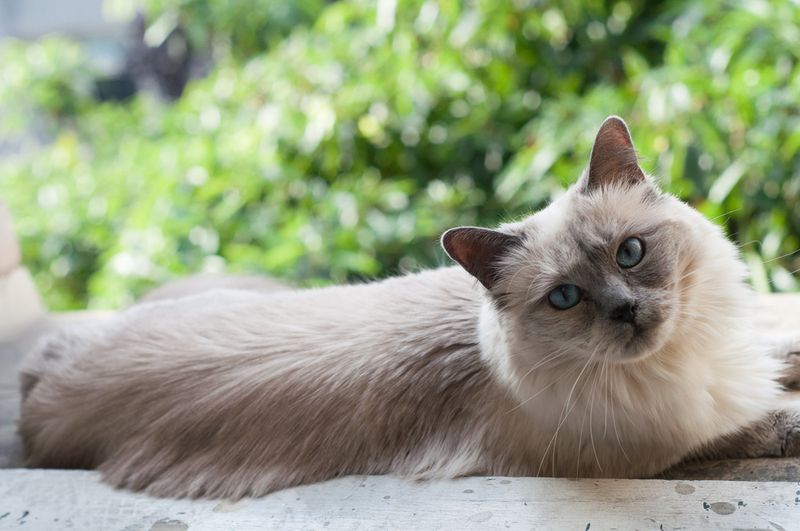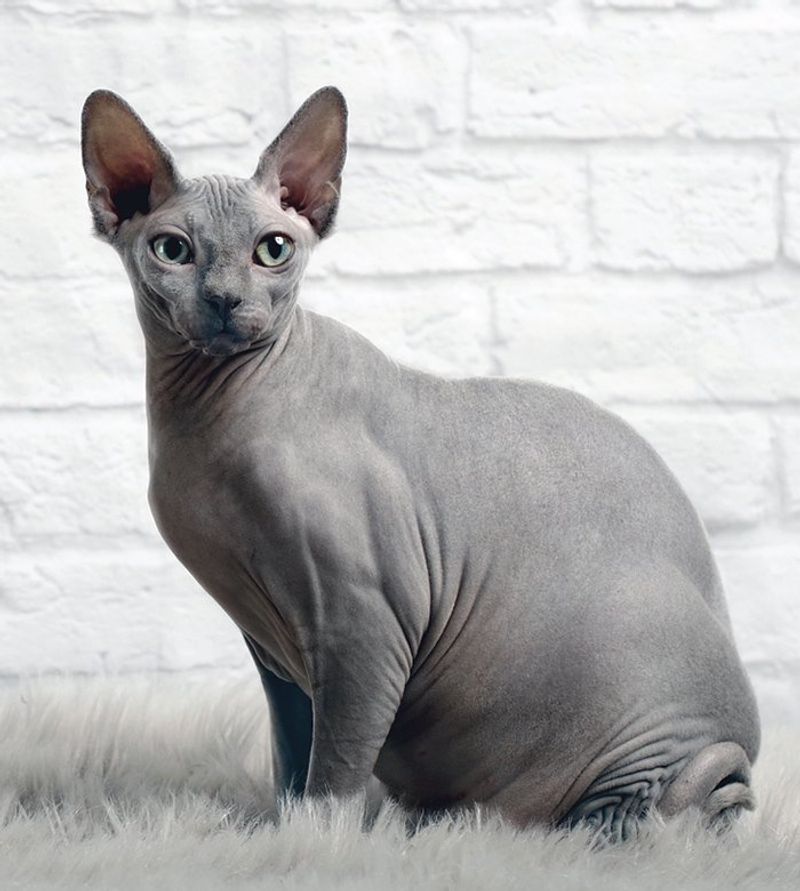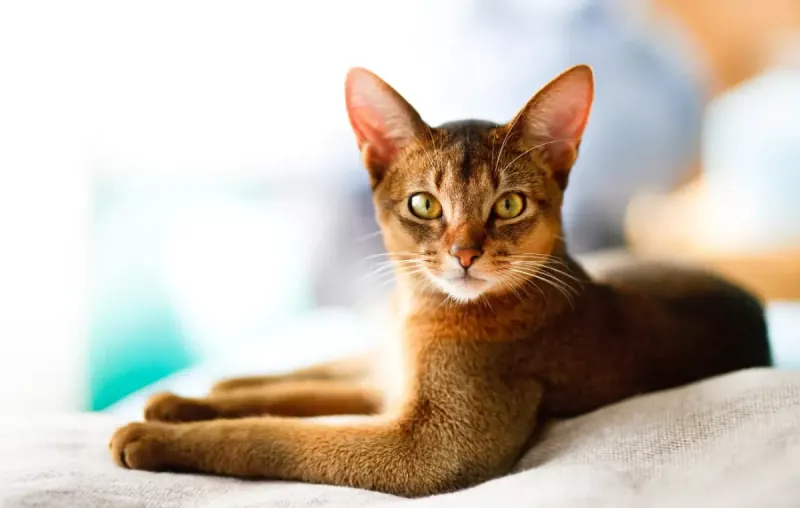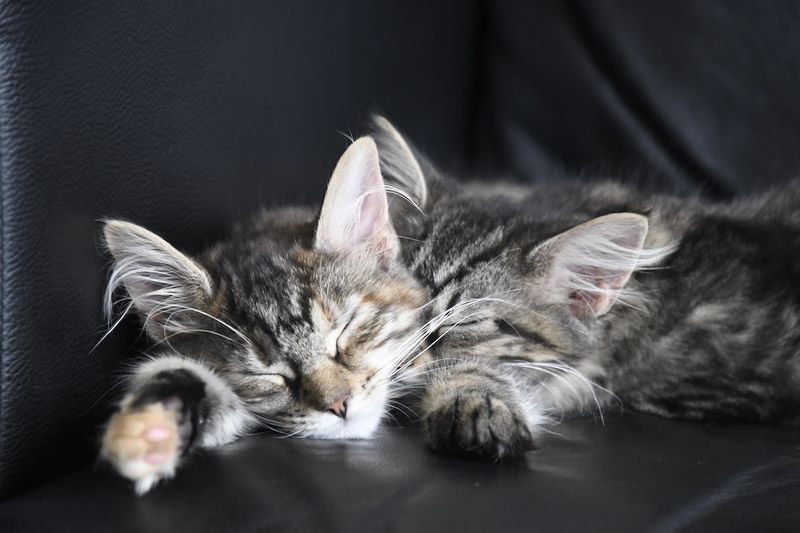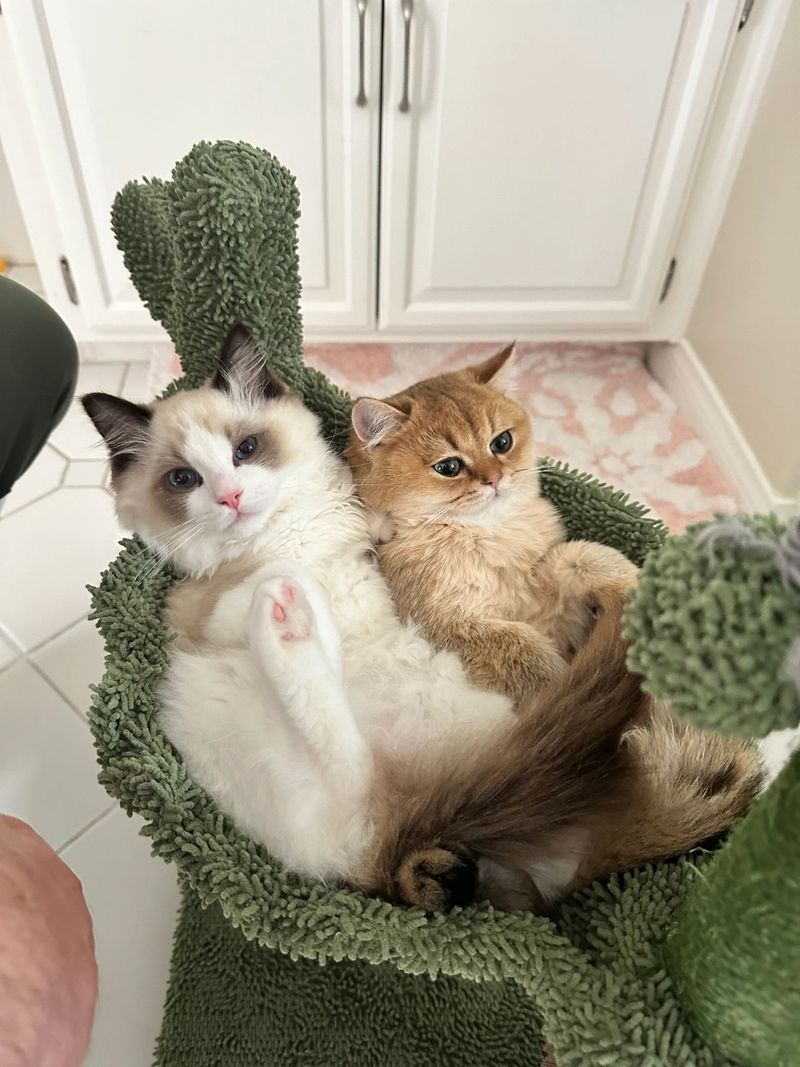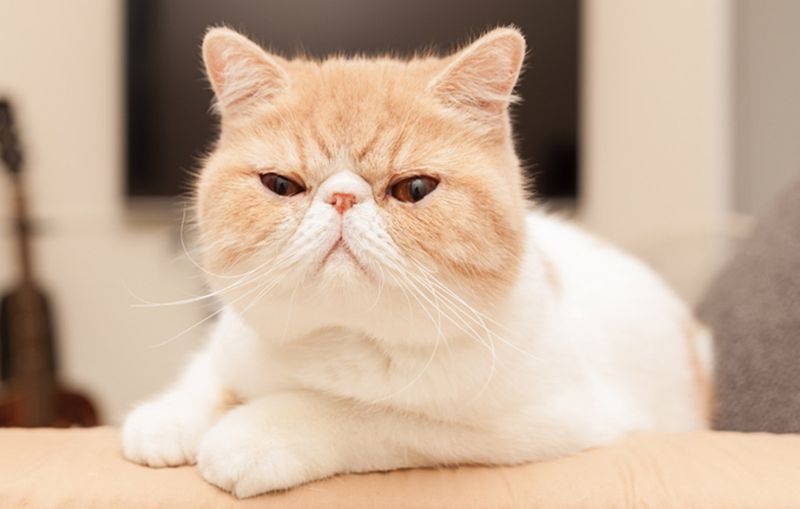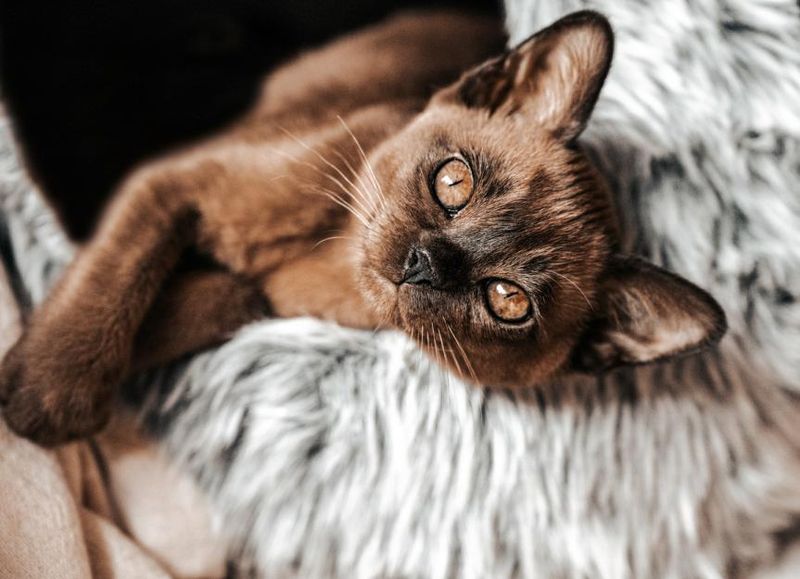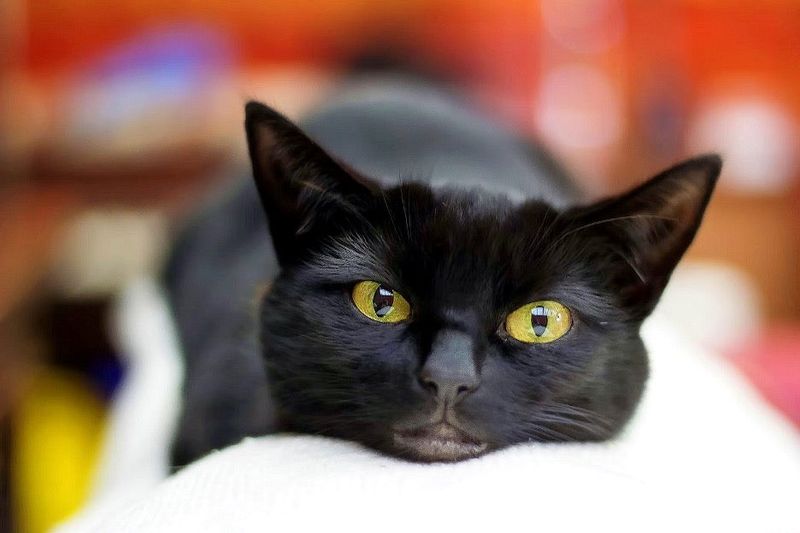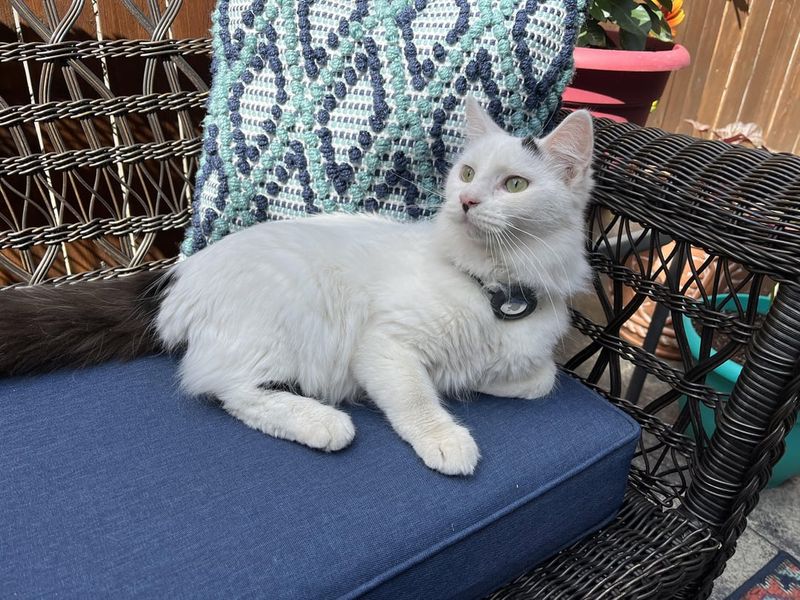📖 Table of Content:
- 1. The Territorial Bengal
- 2. Persian Princes and Princesses
- 3. Siamese Space Defenders
- 4. Scottish Fold Fortress Builders
- 5. Single-Owner Sphynx
- 6. Abyssinian Aristocrats
- 1. Laid-Back Maine Coons
- 2. Sociable Ragdolls
- 3. Easy-Going Exotic Shorthairs
- 4. Burmese Buddy System
- 5. Bombay Crowd Pleasers
- 6. Turkish Van Sharers
Cats possess unique personalities, particularly when it comes to how they view their territory. Some felines take on a protective role, guarding their space as if it were a kingdom. Others are more laid-back, offering affectionate gestures like purring and head bumps to visitors.
Territorial behavior can vary greatly from one cat to another, influencing how they interact with their environment and the people around them. Certain cats are more private, preferring solitude in their space, while others thrive in the presence of others. Recognizing these differences can make a significant impact on how a cat adapts to a new home.
Understanding a cat’s territorial tendencies is key to fostering a harmonious relationship. It can also help prevent conflicts with other pets or family members. Choosing the right cat for a particular household ensures a more peaceful coexistence, free from unexpected confrontations or territorial disputes.
1. The Territorial Bengal
Bengals take ‘personal space’ to a whole new level. These spotted beauties combine wild ancestry with domestic cat qualities, creating a feline that views your home as their exclusive jungle gym. They’ll mark furniture, toys, and even you as ‘Bengal property’ with determined headbutts and scent marking.
Sharing with other pets? Not in their vocabulary. They demand exclusive access to prime window perches and the best sleeping spots. Their athletic bodies need room to leap, climb, and explore without competition.
Despite their territorial streak, Bengals form intense bonds with their chosen humans. They simply prefer to be the only animal receiving attention in their kingdom.
2. Persian Princes and Princesses
Royal by nature, Persian cats expect their domains to be respected like the palaces they believe they deserve. Their fluffy majesty comes with a side of serious space-guarding instincts. These long-haired monarchs will give you the cold shoulder if you disturb their carefully chosen resting spots.
Persians particularly dislike sharing with rowdy pets or children who might disturb their peaceful existence. They prefer quiet, undisturbed environments where they can lounge dramatically on cushions without interference.
When another animal approaches their special places, expect the Persian death stare – a slow, disapproving gaze that could freeze lava. Their passive-aggressive space defense includes silent retreats and judgmental looks rather than outright aggression.
3. Siamese Space Defenders
Famous for their vocal opinions, Siamese cats aren’t shy about letting everyone know which spaces belong exclusively to them. These chatty felines combine intelligence with territorial instincts, creating mini dictators who monitor household boundaries with hawk-like attention.
A Siamese will follow you around complaining loudly if another pet has invaded their favorite spot. Their striking blue eyes narrow to slits when they spot trespassers on their claimed territories. These cats are particularly protective of their favorite humans, too.
Unlike some territorial breeds, Siamese will actively patrol their domains rather than just defend one spot. Their entire home is their kingdom, and they consider themselves the rightful rulers who decide who gets access to what spaces.
4. Scottish Fold Fortress Builders
Don’t let those adorable folded ears fool you – Scottish Folds can be surprisingly territorial about their chosen spaces. These round-faced cats stake claims on specific spots and defend them with stubborn determination that belies their cute appearance.
Scottish Folds particularly guard sleeping areas and food bowls. Their territorial behavior often manifests as sitting firmly in place, refusing to budge when other pets approach. They won’t necessarily hiss or swat, but their immovable presence makes the message clear.
Their space-guarding tendencies extend to toys and scratching posts too. A Scottish Fold might calmly walk over and sit directly on a toy another cat is eyeing, using their body as a living barrier to maintain exclusive ownership.
5. Single-Owner Sphynx
Hairless and heat-seeking, Sphynx cats form intense bonds with their chosen person and often reject sharing that special someone. Their lack of fur makes them naturally drawn to warm bodies, but they’re picky about whose body heat they’ll accept.
A Sphynx typically chooses one primary human and becomes possessively attached. They’ll wedge themselves between their favorite person and anyone else trying to get close. Other pets attempting to cuddle with their chosen human might face gentle headbutts or persistent attempts to insert themselves into the middle.
Their territorial behavior stems from dependence rather than aggression. Sphynx cats need body heat and close contact for comfort, making them reluctant to share their most important resource – you!
6. Abyssinian Aristocrats
Abyssinians carry themselves with the confidence of natural rulers, believing your home exists primarily for their enjoyment. These active, ticked-coat cats claim large territories and monitor them with intense focus. Their extraordinary jumping abilities let them defend spaces from floor to ceiling.
Rather than aggressive displays, Abyssinians use athletic prowess to maintain control of their domain. They’ll simply outmaneuver other pets, reaching prized perches first or zooming across rooms to reclaim spaces others approach.
Their territorial nature comes with intelligence that makes them strategic about space defense. An Abyssinian might create diversions to lure another pet away from a coveted spot, then double back to claim it. They’re the chess players of the cat world when it comes to territory management.
1. Laid-Back Maine Coons
Gentle giants of the cat world, Maine Coons bring a refreshing “the more, the merrier” attitude to multi-pet households. These fluffy behemoths can weigh up to 18 pounds but use their size for cuddle puddles rather than intimidation. Their easygoing nature makes them natural peacekeepers in feline social groups.
Maine Coons happily share sleeping spots, toys, and even food bowls with minimal fuss. Their patient temperament extends to children and other animals who might not understand personal boundaries. Unlike territorial breeds, they rarely claim exclusive spots.
Many Maine Coon owners report their cats actively seeking out companionship from other pets. Their social nature means they’re more likely to initiate play or grooming sessions than squabble over territory disputes.
2. Sociable Ragdolls
Ragdolls earned their name from their tendency to go limp when held, but they could just as easily be called “sharers” for their exceptional tolerance of shared spaces. These blue-eyed beauties view territorial disputes as beneath their dignity, preferring peaceful coexistence to boundary battles.
A typical Ragdoll will casually allow other pets to join them on furniture, beds, and window perches without complaint. Their docile nature makes them ideal for households with multiple animals or children who might not always respect personal space.
Ragdolls sometimes seem genuinely confused by territorial felines. They’ll approach hissing cats with innocent curiosity, apparently unaware that some spaces are supposed to be off-limits. This chill attitude helps diffuse tension in multi-pet homes.
3. Easy-Going Exotic Shorthairs
Persian personalities in low-maintenance packages, Exotic Shorthairs bring the same sweet temperament without the grooming demands. These round-faced felines take a “live and let live” approach to household territories. Their calm demeanor makes them excellent companions in busy, multi-pet environments.
Exotic Shorthairs rarely engage in territory marking or defensive behaviors. They’ll happily share beds, perches, and even laps with other animals. Their placid nature means they’re unlikely to start disputes over prime napping spots or toys.
Many owners describe their Exotics as natural mediators who help maintain household harmony. When other cats begin posturing over territory, Exotics often walk away or attempt to diffuse the situation with friendly overtures rather than escalating tensions.
4. Burmese Buddy System
Life is a shared experience for Burmese cats. These sociable, shiny-coated felines favor closeness and rarely retreat to be alone. They also integrate well with other animals, sidestepping the usual territorial behavior.
Known for their playful personalities well into adulthood, Burmese cats view other animals as potential playmates rather than space competitors. They’ll happily invite other pets to join them in sunny spots or cozy beds. Their generous attitude makes them ideal for multi-pet households.
The Burmese philosophy seems to be “the more friends, the better.” They’re known to form close bonds with dogs, other cats, and even smaller pets like rabbits. Their space-sharing tendencies reflect their overall social and affectionate nature.
5. Bombay Crowd Pleasers
Sleek and shiny like miniature panthers, Bombay cats combine striking looks with surprisingly social personalities. These midnight-black felines love company and rarely object to sharing their territory with humans or other animals. Their adaptable nature makes them excellent additions to existing pet households.
Bombays actively seek out warm bodies to snuggle with, whether human, feline, or canine. They show little possessiveness over sleeping spots, happily making room for friends to join their cozy pile. Their affectionate temperament overrides any territorial instincts.
Unlike solitary-minded cats, Bombays often follow their people from room to room, preferring company to claiming exclusive territories. This social butterfly approach extends to their interactions with other pets, making them natural diplomats in multi-animal homes.
6. Turkish Van Sharers
Famous for their swimming abilities, Turkish Vans bring the same go-with-the-flow attitude to household dynamics. These athletic cats with distinctive color patterns prioritize play and exploration over territorial disputes. Their high energy levels channel into positive interactions rather than space guarding.
Turkish Vans typically welcome other pets into shared activities, from chasing toys to afternoon naps. They show remarkable adaptability when new animals join the household, quickly adjusting boundaries to accommodate newcomers. Their confident personalities mean they don’t feel threatened by sharing resources.
Water-loving and adventurous, Turkish Vans seem more concerned with having fun than maintaining exclusive territories. They’ll happily share even favorite spots like bathroom sinks or water bowls, making them excellent companions in multi-pet environments.
